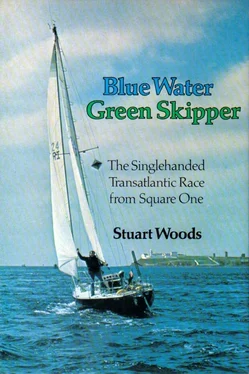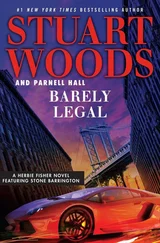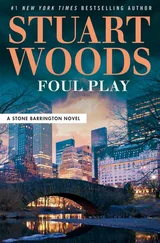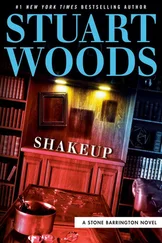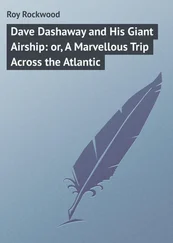Ron and Laurel Holland moved into their new home, Strand Farmhouse, in Currabinny, across the river from Crosshaven, and for the first time Ron had a proper design office. From his drawing board he had a view of the Royal Cork and the members’ yachts moored in the river; he could see all who came and went. Shortly before I left for Plymouth, he and Laurel cruised down to Kinsale with me, the first time they had sailed together in two years, kept apart on the water by Ron’s increasingly busy schedule and Laurel’s pregnancy. Kelly, the Holland daughter, was a big tot by now, and Laurel was pregnant again.
Now I applied to the Irish Yachting Association to be examined for the Yachtmaster’s Certificate, the culmination of a program I had been working on for more than a year. To my astonishment and consternation, I was told that I did not have enough experience to sit for the examination. The Yachtmaster’s program called for forty-eight hours of classroom instruction (I had had sixty-four); six days of practical instruction (I had had ten); and five hundred miles of offshore cruising (I had submitted a logbook documenting more than four thousand miles offshore, thirteen hundred of it single-handed). I was incensed to be told that I did not have enough experience even to take the examination. If I took it and failed, fine, but I did not feel I should be denied the examination after so much work. Apparently, the difficulty had stemmed from a report about my training cruise aboard Creidne, when Captain Eric Healy, the skipper, had suggested I needed more experience of handling the boat under power, and that I had been impatient with the crew when skippering. I agreed that these had been justifiable, constructive criticisms at the time, but since then I had sailed more than three thousand miles and amassed a great deal more experience, and I did not feel that comments made a year before still were applicable. At the suggestion of a friend, I wrote to the president of the IYA, explaining my position and requesting an examination before I left for Plymouth. I waited nervously for a reply.
My back problem had begun to abate now, after more than three months of pain whenever I stood up or walked for more than two or three minutes at a time. The lower back pain had extended to the sciatic nerve, which runs from the hip down to the foot, then given way to severe muscle cramps which continued for some weeks. I had been to two more back specialists; one had given me muscle relaxant injections which helped somewhat; the other had told me just to wait and it would go away, and he prescribed a very embarrassing, steel-braced corset to be taken on the transatlantic crossing in case the fractured disc slipped out of place again. Having always been extremely healthy and unaccustomed to severe pain, I lived in terror of the thing recurring in mid-Atlantic. My last treatment came from a quack, an Irish farmer who seemed to be able to “divine” and treat the source of pain, much in the way that some people are able to divine water. His treatment had the most immediate and dramatic effect of all, although it did not cure the problem entirely, and I was unable to see him again, as he lived some distance from Cork. So I tucked my corset into a locker on the boat and hoped for the best. I was also very careful about lifting things and favored the injury whenever I could.
At the Easter bank holiday weekend I planned a return to the Scillies with some friends, having been very impressed with the islands when we stopped there during the Irish Mist delivery trip the spring before. We spent a delightful, sunny weekend, listening to the local male choir in the pub and seeing Harold Wilson, recently retired as prime minister, strolling on the beach with the giant Labrador which had once nearly drowned him when the dog had capsized the dinghy from which Mr. Wilson was fishing.
Our passage back was pleasant and fast, taking only twenty-seven hours in a good breeze. We had been supremely comfortable on the boat, what with the central heating and the stereo, and after much work the bugs were finally being ironed out. Harp was beginning to be something like ready for the transatlantic. No serious water was coming into the boat, although there were one or two minor leaks I hadn’t yet located; the new Dynafurl supplied by Tim Stearn was working well in its newly engineered form; and with the addition of the new storm jib, which could also be used as a reaching staysail, the sail plan now seemed ideal.
Back in Cork my sextant, which had been left with Henry Browne & Son for reconditioning and correction, arrived, not having withstood very well the tender mercies of the British and Irish postal systems, and I packed it back to London with Harold Cudmore, who was setting off for America and Spain on the international yacht racing circuit.
Word came that I would be examined for the Yachtmaster’s Certificate after all, and a Mr. O’Gallagher met me at a Cork hotel, examined me closely for more than an hour, and pronounced me passed, to my intense relief. I believe I was the first person to be certified under the program.
I made a final dash to London, where I conferred with my publishers and took care of last-minute details. Ann and I continued our restaurant research, and I had another lunch with Angela Green of The Observer, when I learned that Chay Blyth, who had damaged his huge trimaran, Great Britain III, in a collision with a ship, would not be participating in the race. All doubts about the entry of Alain Colas had been resolved, though, and he would be sailing his 236-foot Club Méditerranée. Colas had nearly severed his right foot when it was caught in an anchor chain the year before, but he had made a remarkable recovery and, wearing a special boot, had made his qualifying cruise in the Mediterranean with a crew of forty. He would do another 1,500-mile single-handed qualifying cruise prior to the race.
Henry Browne & Son, when they saw the state of my old sextant, promptly gave me a new one without charge. That is the sort of customer relations that maintains an outstanding reputation, as was also my experience with the Omega Watch Company. I had purchased an expensive Omega wristwatch which had performed erratically; when I got no satisfaction by reporting this to the American importers, I wrote directly to the company in Switzerland, and within a very short time, the Irish distributors had replaced the old watch with a brand-new Omega Seamaster electric wrist chronometer, which performed beautifully. In general, I found that most of the suppliers I dealt with took great pride in their products and were always ready to make adjustments when warranted. Only two or three times in the eighteen months that I dealt with manufacturers was I disappointed by a supplier’s attitude. During the whole of the project I was badly let down by only one equipment manufacturer.
My final task in London was to buy provisions for the race, and for this I went to Harrods, that superb department store in Knightsbridge. On the Azores trip I had become bored very quickly with my diet, and I was determined to take more time and plan my menus more carefully for the much longer transatlantic passage. I chose Harrods because their magnificent food halls are stocked with a huge variety of main courses in tins. Any supermarket has a lot of canned food, but the choice of main dishes is poor. Harrods has everything, from the simple to the exotic, and I filled four or five large shopping carts with stews, chicken, sauces, cheese, meats, and, best of all, American snack foods I had grown up with, packed in tins to preserve their freshness. It was expensive, but I would eat very well indeed.
Back in Cork I had less than a week to dismantle my life in Ireland and prepare for a new one at sea. Those last days were wildly busy, every moment taken up with packing, paying bills, making arrangements to have mail forwarded and goods shipped to the States. I was very sad at the thought of leaving Drake’s Pool Cottage, and even sadder to leave Fred, but he had, fortunately, practically adopted the McCarthy family, who lived near the main gate of Coolmore, staying there whenever I left Cork for a few days. They loved him and he loved them. It is not every dog who has the opportunity to choose his own family.
Читать дальше
